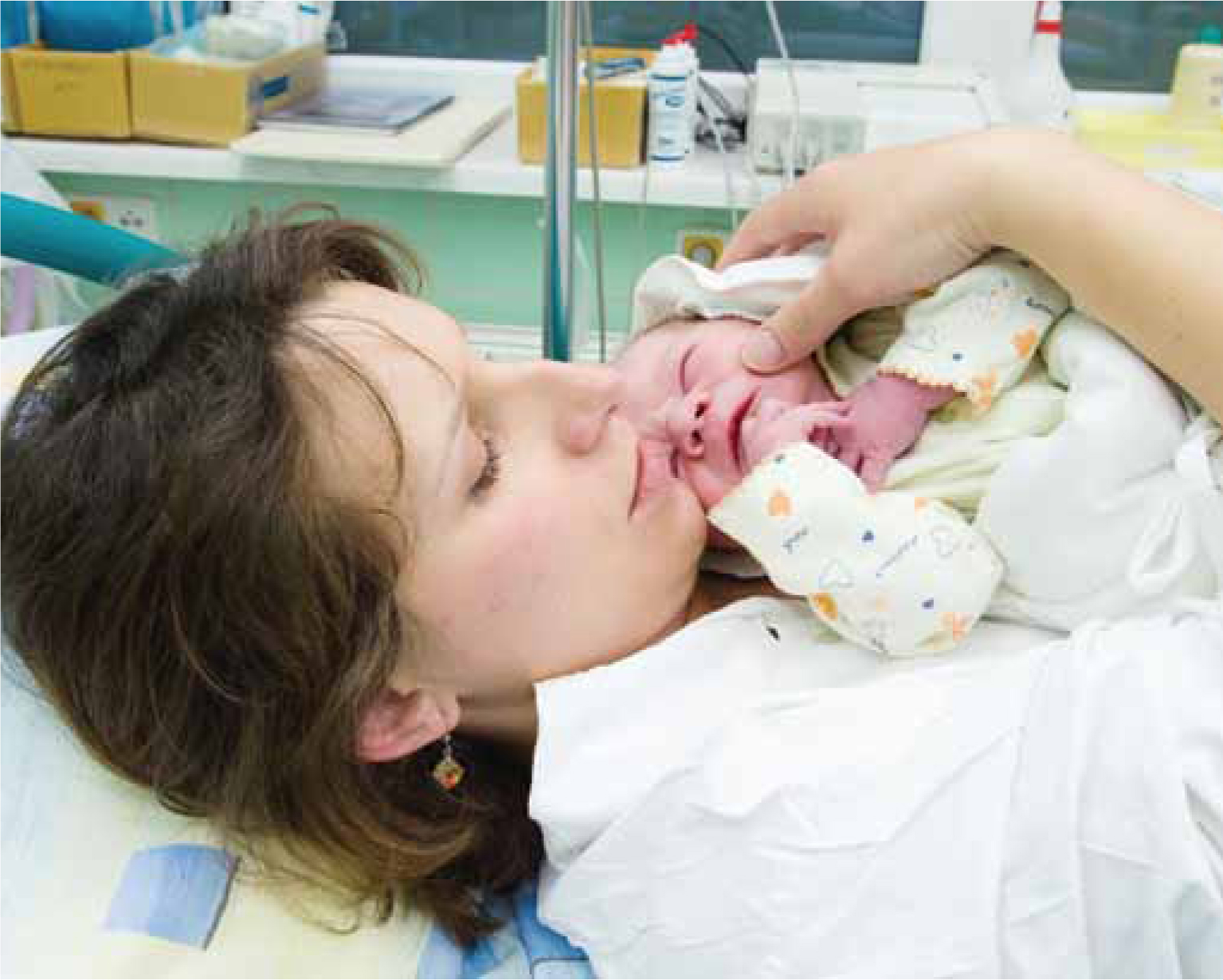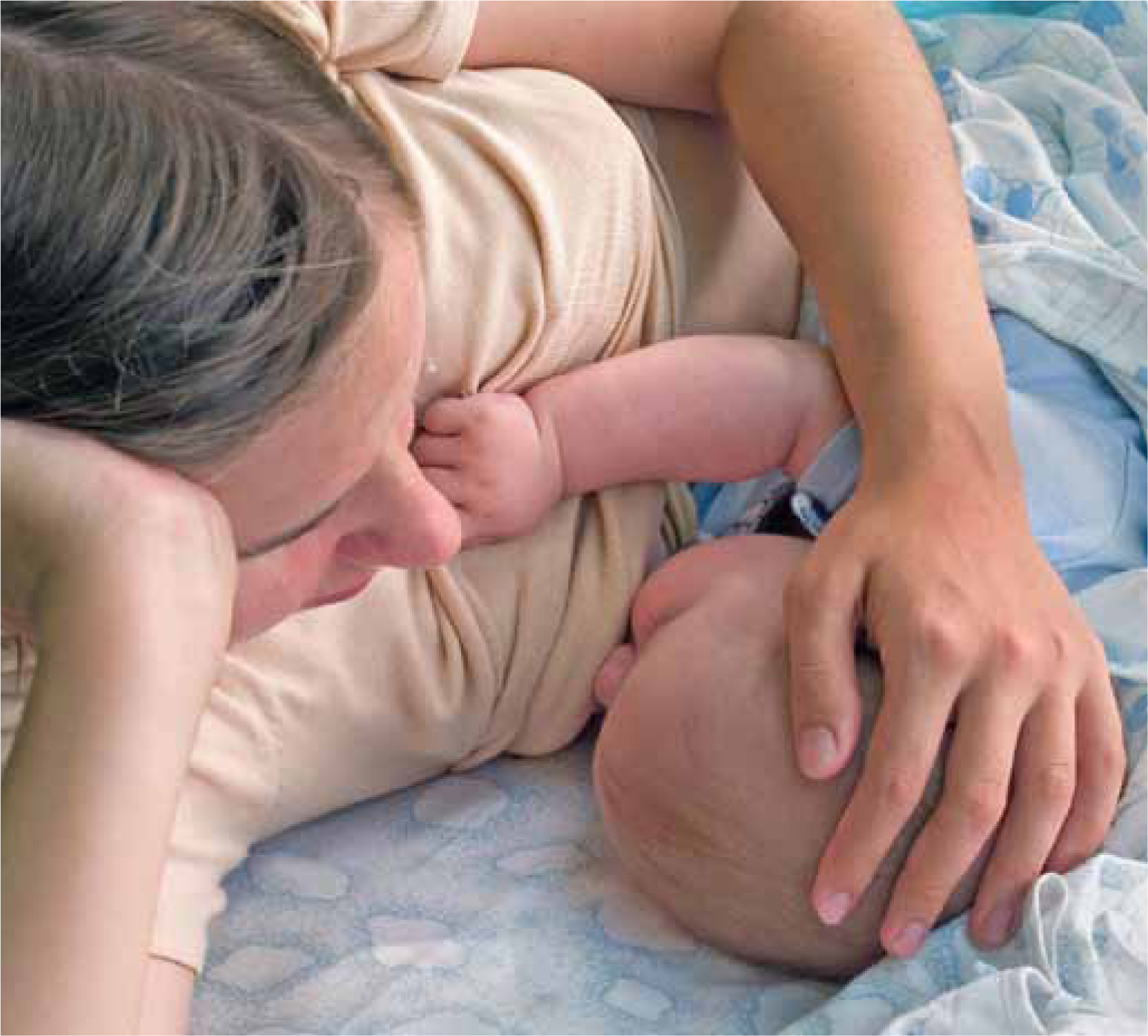
It is estimated that around 600 women receive antenatal care, and more than 100 babies are born to women in prison in England and Wales each year. Women in prison are one of society's most disadvantaged groups, suffering severe health and social inequalities. Yet despite several pieces of national and international legislation protecting their health and wellbeing, many do not get the care and support to which they and their babies are entitled. Pregnant women, in particular, can suffer in a system that often struggles to meet their basic needs.
At Birth Companions, we provide practical and emotional support to pregnant women and new mothers in prison, on release from prison, and those serving community-based sentences. In May 2016, we launched our Birth Charter (Box 1), a comprehensive set of recommendations on aspects ranging from antenatal care and access to birthing partners to breastfeeding, family visits and counselling. We hope the Birth Charter will inform the Government's ongoing review of the treatment of these vulnerable women and their babies, and improve current practice across the country's prison service.
Box 1.Birth Charter for women in prisons in England and WalesBirth Companions (2016)
| Pregnant women in prison should: |
| 1. Have access to the same standard of antenatal care as women in the community |
| 2. Be able to attend antenatal classes and prepare for their baby's birth |
| 3. Be housed, fed and moved in a way that ensures the wellbeing of mother and baby |
| 4. Be told whether they have a place on a mother-and-baby unit as soon as possible after arriving in prison |
| 5. Have appropriate support if electing for termination of pregnancy |
| During childbirth, women should: |
| 6. Have access to a birth supporter of choice |
| 7. Be accompanied by officers who have had appropriate training and clear guidance |
| 8. Be provided with essential items for labour and the early postnatal period |
| 9. Receive appropriate care during transfer between prison and hospital |
| Women with babies in prison should: |
| 10. Be encouraged and supported in their chosen method of infant feeding |
| 11. Be supported to express, store and transport their breast milk safely, if they are separated from their baby |
| 12. Be given the same opportunities and support to nurture and bond with their babies as women in the community |
| 13. Be entitled to additional family visits |
| All pregnant women and new mothers should: |
| 14. Be able to access counselling when needed |
| 15. Receive appropriate resettlement services after release from prison |
Maternal health practitioners, and particularly midwives, play a central role in the care of perinatal women in prison. But lack of comprehensive guidance for prisons in this challenging area is sometimes compounded by an additional need for training, guidance and support for midwives. This is an issue that Birth Companions is taking practical steps to address, in partnership with the Royal College of Midwives (RCM).
Perinatal women in prison
There are six prison mother-and-baby units (MBUs) in England and Wales, with a total capacity of 64 babies, and babies can stay on MBUs until they are 18 months old. In 2015, 100 babies spent time on an MBU. Around 50% of women do not apply for—or are unsuccessful in applying for—a place on an MBU and are separated from their baby shortly after birth.
Many women in prison have complex health needs such as drug and alcohol addiction or poor housing, with as many as 80% suffering from some form of mental health condition. A significant proportion of women in prison have been victims of childhood sexual abuse, and it is thought that 50% are victims of domestic violence (Albertson et al, 2012).
The babies born to women in prison often experience risks that could affect their care and development, and are more likely to experience perinatal mortality and morbidity than the babies of non-incarcerated women. These significant and multiple needs mean that women prisoners need high-quality care from midwives who are skilled in working with women with complex social issues (Corston and Britain, 2007; Renfrew et al, 2014).
Birth Companions has been supporting perinatal women in prison for 20 years through pregnancy and early parenting groups, one-to-one support and birth support. The charity's provision of evidence-based information and practical and emotional support (including continuous support in labour) complements and enhances the work of midwives.
Why is a Birth Charter needed?
Birth Companions' experience of working with pregnant women and new mothers in prison has shown that care for these women varies greatly, both from one prison to another and within prisons. Some women have described how coming to prison enabled them to turn their life around and make a new start with their baby. For others, it proved a stressful experience during which they struggled to meet basic needs—such as adequate food, privacy and dignity—and to focus positively on their baby.
A lack of comprehensive guidance in many areas, lack of application of the rights to which women are already entitled through existing legislation, and lack of understanding of the evidence base around the impact of risk factors on child development during pregnancy and the early years, are at the heart of the failures to provide appropriate care.
For example, women visiting hospital for antenatal appointments or to give birth often describe the effect of the unwanted presence of prison officers in the room:
‘While I was in labour I had two prison officers at the end of my bed. I was having difficulties, which I am sure was partly because of being so stressed having officers present.’
‘While I was there every single mother had a caesarean section we all felt that it was because we were stressed and the officers were in the room all the time. I was in deep labour and I couldn't really speak but I know they were there, I can still see their faces.’
The Prison Service Security Framework states clearly that ‘escort staff will not be present in the delivery room, or in a room where an intimate examination is taking place, unless the prisoner requests it’ (National Offender Management Service, 2015: 19) yet officers are sometimes unaware of this and stay. Prisoners often do not know they are entitled to ask officers to leave the room, or feel unable to assert their wishes (Kline and Martin, 2013; Abbott, 2015). The Birth Charter recommends that all officers should observe prison guidance. This is a clear example of where, if properly informed, midwives can advocate for women by asking officers to leave and ensuring the optimum conditions for labour.
Another area of focus is breastfeeding support. This includes women who will be separating or are separated from their babies being able to express and store breast milk, which enables the babies to receive the health benefits and helps the women feel less distressed. The Birth Charter recommends that specialist breastfeeding support should be available and that prisons should provide the required equipment. Midwives have a vital role to play immediately after birth in facilitating breastfeeding—or expressing if a woman is separating—and in continued support to women after they return to prison.
There is no doubt that supporting perinatal women in prison is complicated and stressful work for midwives, requiring adequate training, resources and sensitive supervision. But there is a strong argument that investing in getting things right in this area will result in significant learning that has the potential to be transposed into other areas. Seven years ago, we broadened Birth Companions' remit to work with other women facing severe disadvantage in the community, with presenting issues that ranged from mental health and substance misuse to experience of torture, sexual violence and trafficking. The experience of working at HM Prison Holloway helped us develop a model to support women in the community at the highest level of vulnerability, working in partnership with midwifery teams at Whittington, Homerton, UCH and King's hospitals, among many others. If midwifery services are serious about addressing inequalities for all perinatal women, then getting things right for pregnant women and new mothers in prison is an excellent place to start.
 Companions Birth
Companions Birth  Birth companions
Birth companions
The Birth Charter is a practical, evidence-based document that will help to inform a compassionate, non-judgemental approach from individual midwives. The principles it sets out, and examples of existing good practice cited, could be used by Trusts as benchmarks for good practice, and as the basis for policies or guidance across all maternity units caring for women in prison. In developing the Birth Charter we benefited from guidance from both the RCM (Box 2) and UNICEF UK Baby Friendly Initiative, and we are developing related modules on the RCM's virtual learning platform. This is an important start. When properly informed, supported and resourced, midwives have the opportunity to be crucial advocates for change, at the forefront of improving conditions for women in prison and enabling them to give their babies the best possible start in life.
Box 2.Royal College of Midwives (RCM) position statementsRoyal College of Midwives (2011; 2014)
| Position Statement on Caring for Childbearing Prisoners |
| The RCM strongly reiterates its position that handcuffs or other restraints should not be used during any medical or midwifery consultation, examination, or during intimate times such as breastfeeding. The RCM believes that the onus of responsibility for ensuring that women are not handcuffed during these times rests with the midwife, who should ask for all restraints to be removed by the attending officer. |
| Position Statement on Women in Custody |
| Many women in custody are moved around the prison system where they encounter different ‘rules’ and practices that are based on local customs rather than agreed, evidence-based protocols… Safe and appropriate care should be available to all pregnant women… to the same quality and standards as the non-prison population and strictly in line with National Institute for Health and Care Excellence guidance. |

